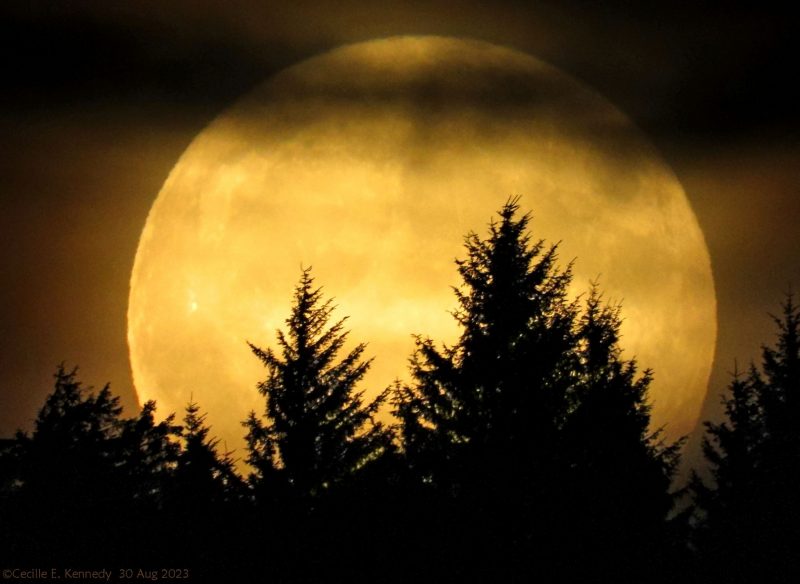The moon illusion is a trick of the mind
We’ve all seen a full moon looming large shortly after it rises, when it’s still hugging the horizon. And it’s true that the moon is sometimes closer to Earth than at other times, making it minutely larger in our sky. Yet the difference is barely discernible. When the moon viewed near the horizon looks larger than usual, your brain is playing a trick on you. It’s called the moon illusion.
You can check it out this week. On October 17, the Super Hunter’s Moon will be the closest supermoon in 2024. But even a brighter than normal supermoon will not look noticeably larger.
It’s all an illusion
We still don’t know the precise cause of the moon illusion. But the video above, from AsapSCIENCE, offers some explanations.
A common theory is when the moon is near the horizon, you’re seeing it in the company of many familiar visual reference points: trees, buildings, mountains and so on. Your brain automatically compares the moon to these reference points. But when the moon is higher up, there’s nothing to compare it to. As AsapSCIENCE says:
The moon seems smaller against the vastness of the night sky.
The moon looks bigger on the horizon. There is an optical illusion which makes the moon appear to be larger the lower it is in the sky. pic.twitter.com/zMAiAJ58g7
— Space Explorer Mike (@MichaelGalanin) August 28, 2017
Prove it to yourself
Maybe you’d like to test this theory yourself. According to NASA, here are some ways to prove it to yourself:
Hold up your outstretched index finger next to the moon. You’ll find that your fingernail and the moon are about the same size. Or try looking at the moon through a paper tube, or bend over and look backward between your legs. When you view it like this, the moon will be nowhere near as big as it had seemed.
Or NASA suggests:
Another ironclad way to size-check the moon is to take a photo when it’s near the horizon, and another when it’s high in the sky. If you keep your camera zoom settings the same, you’ll find that the moon is the same width, side to side, in both photos.
What about a red or orange moon?
By the way, there’s a second phenomenon that the moon displays when we see it near the horizon. That is, a low moon often appears red or orange in color. That reddish color is not an illusion. It’s a true physical effect, caused by the fact that – when the moon is low in the sky – you’re seeing it through a greater thickness of Earth’s atmosphere than when it’s overhead. The atmosphere filters out the bluer wavelengths of moonlight (which is really reflected sunlight). Meanwhile, it allows the red component of moonlight to travel straight through to your eyes. So a low moon is likely to look red or orange to you.
So how do people get those photos of extra big moons seen near a horizon? Photographers use zoom lenses and have familiar objects in the foreground making the more distant moon look huge. So they’re the result of photographic tricks and techniques, which you can read about here or here.
Some photos from our EarthSky Community

Bottom line: It’s the Super Hunter’s Moon this week. You might see an extra-large-looking moon low in the sky. It’s the moon illusion that makes the moon look so big.
Did you get a great photo of the Super Hunter’s Moon? Submit your photos here. We love to see them!